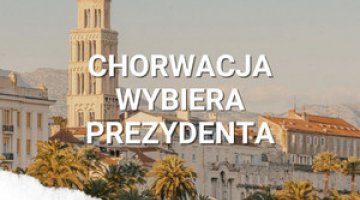The acquittal of Croatian generals is challenging the reconciliation process in the region
On November 18, the International Criminal Tribunal for the former Yugoslavia (ICTY) acquitted Croatian generals Ante Gotovina and Mladen Markac of all the charges connected with the way the military operation against Croatian Serbs was conducted in 1995.This mean fundamental change of the initial verdict reached in April 2011, in which both defendants had been found guilty of the crimes they were accused of and given lengthy prison sentences.
The trial and the prison sentences had until now been presented as the primary evidence of the impartiality of the ICTY, which has not only handled cases of crimes committed by Serbs but by other ethnic groups too. The trial and the prison sentence had also been treated as a form of moral compensation for Serbian war victims. This acquittal will likely make the reconciliation process in the territory of the former Yugoslavia more difficult. It may equally diminish Belgrade's determination to continue integration with the EU.
The Tribunal's controversial verdict
On November 18, the ICTY Appeals Chamber acquitted the Croatian generals Ante Gotovina and Mladen Markac of the charges of being responsible for the expulsion of over 150,000 people, the murder, persecution and brutal treatment of Serbian civilians as well as the looting and destruction of property during Operation Storm 1995, where Croatian troops regained Krajina – the part of the Croatian territory controlled by Serbs. Thus the verdict issued previously in April 2011 was completely change. In that verdict both generals were found guilty of the crimes they had been accused of (including involvement in a joint criminal enterprise whose objective was to expel the Serbian population from Krajina) and duly sentenced to 24 years (Gotovina) and 18 years (Markac) in prison.
The acquittal caused controversy not only in public opinion but also among five judges. Two judges presented dissenting opinion and other two supported the judgment but also presented separated opinion The lack of unanimity and the total reversal of the ruling issued in the first instance, in one of the key trials underway in the Tribunal, called into question its very credibility.
Political aspects of ICTY verdicts
The Tribunal, founded in 1993, was intended to punish certain individuals for having perpetrated war crimes during the Balkan conflict. However, over the course of time the Tribunal's role became part of a broader context of fostering the reconciliation process. Following political pressure the Tribunal has also attempted to pass a symbolic judgment on all parties in the conflict and their role in the events of the 1990s. In consequence, more importance was placed on pursuing and putting on trial those political leaders known in the West (as happened with Serbian nationalist leader Vojislav Seselj). As a result, the ICTY applied complicated legal doctrine to charge political and military leaders. These indictment were usually dismissed during the trials.
It is in this light that the trial of Ante Gotovina, the commander of the Split military district, and Mladen Markac, the special forces commander of the Croatian police, should be seen. They have become the symbols of Croatian culpability for the crimes committed during Operation Storm and for the expulsion of Serbian civilians from Krajina (the Croatian president in the 1990s, Franjo Tudman, died in 1999, before charges were presented against him).
The trial of the generals was also intended as the best evidence for the impartiality of the Tribunal which in the majority of cases brought Serbs to trial (approximately 68% of the accused) but which also attached importance to dealing with crimes perpetrated by other parties in the conflict. The first verdict was used both politically as a symbol of recognition of the Serbian war victims and equally as proof that Serbs were not the only ones implicated in war atrocities. As for Croatia, by sentencing to prison the same Croatian generals who were regarded as war heroes by the majority of their compatriots, this verdict challenged the image of Croats as innocent war victims who only defended themselves against Serbian aggression and did not commit any crimes. For these reasons this trial was followed closely. The acquittal will therefore have wider implications for the countries from the region.
The response in the region
After the verdict was announced patriotic rallies were held across Croatia to celebrate the acquitted heroes. The court's decisions are, for a major segment of society, the confirmation of the Croats’ innocence in the military operations conducted between 1991 and 1995. The Croatian government and Ante Gotovina are trying to distance themselves from overly far-fetched interpretations of the Tribunal's verdict since they are claiming that the release of the leaders from responsibility does not mean that no crimes and violations were perpetrated in Operation Storm which should go unpunished. Such declarations, however, do not alter the way in which the verdict is perceived in the wider public.
In Serbia the verdict was heavily criticized across nearly all political circles. It was deemed the ultimate evidence of the Tribunal’s partiality, in that it treats Serbs much more severely but was unable to deliver justice in the case of crimes where Serbian civilians were the victims. Serbian reactions are also more vehement because the fact that the former verdict was completely reversed as a result of the appeal is hard for them to comprehend.
The implications
The verdict will reinforce the nationalist rhetoric in Serbia and Croatia and may have a negative impact on the reconciliation process in the whole region. The ICTY's decision perpetuates the view held in Serbian society that Serbia is the victim of the West’s politics, whereas in Croatia it may affect attempts to hold Croatian war criminals to account. An immediate consequence of this decision is the suspension of co-operation between Serbia and the ICTY, which is essentially of symbolic importance as the Tribunal itself is ending its operation in 2014 and the bulk of evidence has already been collected. In the long term this verdict may lead to a failure of such initiatives as the Regional Commission for Truth and Reconciliation (RECOM), created in 2008 by non-governmental organizations from the Balkan states, as it will be more difficult for the parties in the conflict to hold those responsible to account and to confront different historical narratives.
The verdict has brought to a halt the detente process in the region, both between Belgrade and Zagreb and Belgrade and Pristina. Serbian-Croatian high-level state visits as well as a further round of Kosovar-Serbian talks in Brussels have been cancelled. Following the ICTY's verdict the Serbian government will find it more difficult to persuade Serbian society that it is necessary to continue integration with the EU in addition to normalization of relations with Croatia and Kosovo. All these initiatives require Serbia to grant concessions which are unpopular domestically in the face of a growing sense of unfair treatment at the hands of the West. These trends will intensify in the immediate future due to another anticipated acquittal by the ICTY in the case of Ramush Haradinaj, the commander of the Kosovo Liberation Army. He is most likely to be acquitted of the charges of committing crimes against Serbian and Romani people in 1998, which will further strengthen the conviction that Serbian society holds that the EU is hostile to Belgrade. The fact that the EU has made progress in integrating the states of the former Yugoslavia dependent on their co-operation with the Tribunal in the Hague has caused Serbians to conflate the two institutions to a large degree. Consequently, aversion to the ICTY will most likely lead to the escalation of anti-EU feelings in Serbia or at the very least a skeptical attitude towards the EU.




